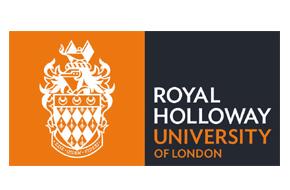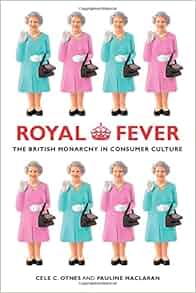Width of marketing and selecting a
subject – your own interest
Marketing, as an academic discipline, constitutes an extremely
broad field with marketing literature making use of concepts, theories and
techniques from sociology, business studies, psychology, and numerous others.
While at first this breadth can present quite a daunting range of possibilities
when trying to pin down a topic for a research-based dissertation, the most
important thing to do is to select a topic that you have a definite interest
in. This might sound obvious but choosing to research something that you
actually want to know more about, rather than something that you think would
be easy to study and produce a 12,000 word thesis on, will not only help to
keep you motivated throughout the process but will also help you to produce
genuinely original and interesting research.

Having
entered university in the UK at a time of significant change, both for the form
of higher education institutions and the sector within which they reside, I was
particularly interested in examining the nature of these changes and how they
have come about. During my time at Royal Holloway, I took part in a number of
student demonstrations against issues connected to these changes, such as
higher tuition fees and the profit-motivated closures of small but invaluable
academic departments. As much as marketing might seem a strange choice of
discipline from which to launch an interrogation and critique of marketisation,
it became ever more clear to me that the huge mixture of ideas and research
instruments available made it the perfect choice.

The primary
constraints on any research dissertation are the maximum allowed length, and
the resources available to you as an MA student. These constraints were
actually of great use to me in terms of setting achievable goals for my
research. I wanted to better understand the more subtle forces that serve to
create an environment in which higher education institutions come to be thought
of as businesses in a competitive market and begin to behave as such. Part of
this interest was also inspired by Chris Hackley's Critical Marketing course,
to which I have to give a good deal of credit.
In
doing preliminary research I came to see that there are a multitude of
social, cultural and economic forces and that to try to produce comprehensive own research would leave me no room to actually look at
anything in depth. At this point the importance of working together
with my supervisor was made manifestly clear to me. Alan advised me to try to
look into an element that I had a more personal experience of, and to do so to
the greatest possible depth. Choosing a micro-, rather than macroscopic focus
might seem like it would hinder your ability to answer whatever grand questions
you might have about your topic, but this was something important I had to
realise about academic research; it is far better to say something new about a
small area, and in doing so actually contribute to scholarly discourse on it,
than to simply retread the same ground that has already been covered by masses
of books and research literature.
Having
waded through numerous university league tables and rankings on the way to
choosing Royal Holloway to study at, and subsequently finding that these had
almost nothing to do with what I experienced as a Royal Holloway student, these
seemed a clear choice. Smartphones as consumer goods can be benchmarked against
each-other on a basis of technical specification, as can cars, and computers
for instance, but is it useful to try to fit university education in to this
commodity market paradigm? Furthermore, as this is already happening, how are
the effects of this experienced within universities? These were, I believed,
questions that I could really sink my teeth into, and with Alan's suggestion
that I look into literature making use of Michel Foucault's concept of
governmentality (the way in which subjects are bought to behave and regulate themselves
according to a given ideology without direct command or coercion) I set to
work.
 |
| Michel Foucault |
The unit I
had taken on qualitative research methodologies had given me the skills and
confidence to make use of a mixed-methods approach combining critical discourse
analysis with qualitative interviews. This allowed me not only to examine what
elements of higher educational institutions were valued in rankings and league
tables, but also to understand how the privileging of certain abstract elements
of higher education changed the way in which academics and institutions had to
behave. Through a sustained campaign of emailing the heads of departments at a
large number of universities I (admittedly to my surprise) found a number who
were willing to take part in semi-structured interviews about my topic. I
combined this with a close analysis of the websites and presentational styles
of a number of leading league tables and ranking exercises, which were also
discussed with my interviewees.
This
combination produced a number of interesting conclusions and while it was of
course gratifying when my conclusions matched closely with my original presuppositions, I found it most exciting when I became aware of points I had not
considered before and additional nuance that could serve as a starting point
for even further research. Although I had originally suspected that all league
tables and rankings had some effect, it became clear that those carried out by
the government itself, such as the Research Excellence Framework were clearly
the most significant to those I had interviewed. The fact that these exercises
in particular are tied to future research funding as well as job prospects
meant that they exert significant power over the activities of institutions and
academics; what is important to the REF inevitably becomes important to
universities because to ignore it means that an institution has no hope of
meeting the abstract criteria of 'excellence', however valuable and novel its
research might be by other standards. At the same time, while commercial league
tables are less significant to research funding, they are of great importance
in attracting paying students, and so again I found that they directly feed in
to a discourse of students as consumers and higher education as a commodity.
Although I
found that both league tables and government-run ranking exercises contributed
to a marketised view of higher education, they do so in different ways, with
league tables focusing on education itself as a commodity, and ranking exercises
focusing on the research that universities produce as a commodity. Returning to
what I mentioned earlier about taking a deep focus on a small area, I found
that my dissertation had indeed answered some of my early questions about
marketising effects in higher education, but had also opened up a few pathways
for future research in the area. I fully believe that without the breadth of
knowledge and techniques made available to me on the marketing course, it would
have been extremely difficult to produce a dissertation on this subject to the
same level.
















